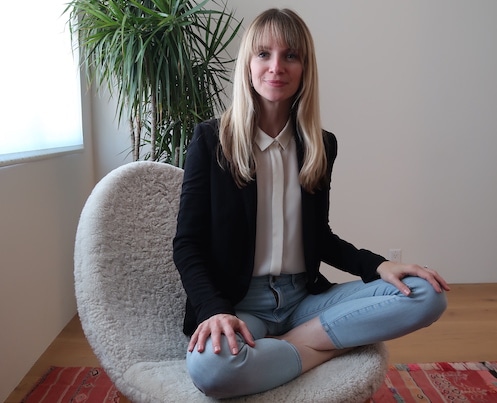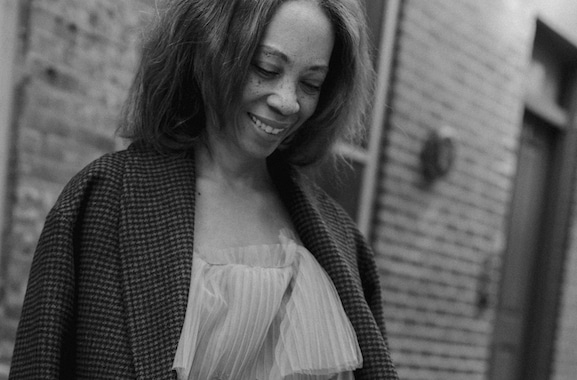Our editor joined in conversation with Molly Nourmand, LMFT, a licensed psychotherapist, yogini, and mother, who shared her valuable insight on how relationship dynamics change for couples, with the arrival of a new baby. If you think your relationship won’t be affected—think again, and read on for advice for keeping it cool together.

LHM
What do you find that surprises most couples, in terms of their dynamic when they become first-time parents?
MN
When you’re an aspiring or expectant parent, you don’t think you’ll become one of those couples—the ones who bicker about everything, infrequently have sex, pass each other like ships in the night, and become more like roommates than lovers. Unfortunately, no one is exempt from having their marriage tested when the baby arrives. For example, if the birthing person is breastfeeding, then they may receive their affection quota from their baby. Consequently, they may reject their partner who wants to physically connect because they are touched out by the end of the day. Three really can be a crowd.
LHM
What’s the key to maintaining a successful relationship or marriage after becoming parents?
MN
First, you need to prioritize your relationship. That sounds doable, right? But it’s easier said than done. Sleep deprivation, issues with the baby and birthing person, like colic and postpartum depression or anxiety to name a few—all while trying to maintain a household, social life, and a job can put the relationship low on the priority totem pole. However, keeping your partnership strong can help weather the aforementioned storms. Although there is no silver bullet, here are some tips on having a successful relationship after becoming parents. Schedule a regular date night, or better yet, a daytime date. Oftentimes, you may be too tired in the evenings, so if you’re able to secure childcare, then carving out a couple hours on a weekend day might be better. Bonus if you can make it a goal to not talk about your child while on your date. It’s important for both the birthing person and partner to understand there may be a winter in your sex life when you first become parents. Plus, sex may look different—at least initially in the postpartum period, and maybe even within the first year after birth. Then, after you’re out of the postpartum woods and are more or less back to normal, then it may be necessary to schedule maintenance sex. It doesn’t sound sexy, I know, but many couples post-kids have hurdles (piles of laundry, anyone?) that can get in the way of connecting sexually. In addition, it’s easy to find excuses for why you cannot have sex. Yet when you commit to making time for intimacy, chances are you won’t regret it after and you’ll wonder why you don’t do it more often. Lastly, if resources allow, then invest in a couple’s therapist. They will help you improve communication, work through any impasses that you have in your relationship, and navigate new parenthood together.
LHM
How should the new parenting roles be divided to keep resentments at bay?
MN
This is huge. I’m so glad you asked. Ideally, you would have these discussions before the baby comes in order to suss out your roles. It’s very important to get clear on who will be working, who is taking parental leave and for how long, what your support system looks like, and what resources you can allocate to childcare and housework. The book Fair Play is a game-changer because it makes the argument for valuing everyone’s time and energy—not just the bread winner’s—and, it creates a system for rebalancing domestic responsibilities with your partner. It’s a must-read for couples.
LHM
How are adults’ parenting styles influenced by their own childhoods?
MN
If you have not made the unconscious conscious by processing your childhood through therapy, then chances are your parenting style will be affected by how you were parented. For example, you may have knee-jerk reactions to your child’s behavior (“I feel disrespected!”) and respond how your parent did (sometimes with yelling), or you may swing in the opposite direction (“My parents were so strict, I’m going to be super easy-going”). If you have already investigated your childhood and the way you were parented—or are willing to put in the time now—then you’ll be more equipped to pause and respond more consciously to a particular situation with your child rather than react.
LHM
How can parents make amends with their inner child before entering parenthood?
MN
Doing some conscious parenting work can help before and after you become a parent. There are books, classes, and therapists who can be supportive of this process.
LHM
How do you recommend couples be aligned on parenting styles?
MN
Ideally, each person would do their inner work on repairing their relationship with their own inner child and parents. Then the couple would communicate about how they want to parent and try to find some common ground. If needed, a parenting educator or a couple’s therapist can help.
LHM
How can couples better support one another, to make sure both of their individual needs are met?
MN
First off, know each other’s Love Language—words of affirmation, quality time, acts of service, gifts, physical touch. And if your partner’s language is not your native tongue, then learn to become fluent in theirs. Next, clarify your needs and communicate them directly—not passively or passive aggressively—so that you don’t harbor resentment. Then, make sure each person gets some time off from parenting in order to get those needs met.
LHM
How can couples keep their relationship in check as their children grow and enter new phases of childhood?
MN
Raising a child is like a moving target—as soon as you achieve some sense of parenting proficiency, they change. Therefore, it’s important for each parent to have an understanding of child development and the basic neuroscience behind what’s going on in their child’s brain. That way, they will know what’s in normal range of behavior for a particular phase, be able to manage expectations of their child, and have more access to empathy.
LHM
Any recommended reading you would suggest for new parents?
MN
Yes—enjoy! Transformed by Birth by Britta Bushnell, PhD, How Not To Hate Your Husband After Kids by Jancee Dunn, Mating In Captivity: Unlocking Erotic Intelligence by Esther Perel, And Baby Makes Three: The Six-Step Plan For Preserving Marital Intimacy and Rekindling Romance After Baby Arrives by John Gottman, PhD and Julie Schwartz Gottman, The Five Love Languages: The Secret To Love That Lasts by Gary Chapman, Fair Play by Eve Rodksy, The Conscious Parent: Transforming Ourselves, Empowering Our Children by Shefali Tsabary, PhD, The Whole Brain Child: 12 Revolutionary Strategies To Nurture Your CHild’s Developing Mind by Daniel J. Siegel, M.D and Tina Payne Bryan, PhD, No Bad Kids: Toddler Discipline Without Shame by Janet Lansbury, Easy To Love, Difficult To Discipline: The 7 Basic Skills For Turning Conflict Into Cooperation by Becky A. Bailey, PhD



